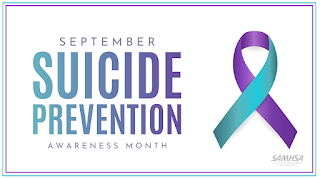Which Coping Skills May - or May NOT - Work During the Pandemic?
It's hard to believe that we're still only a few months into this pandemic, but it's true. (I'm pretty sure I didn't wear a mask while Christmas shopping 8 months ago, did you?) As the media tells us almost constantly, medical science is racing to conduct research and provide new insights into exactly how COVID-19 works - and how to stop it. The social and behavioral sciences are also working overtime to address the many, many effects of this virus on how we feel, think and behave.
We just discovered this article on research conducted in Germany and wanted to share some new data with you. The researchers originally set out in December of 2019 to measure coping skills in the workforce and planned to do followups every 3 months for a year. And then there was COVID-19. Seeing an opportunity where they had baseline pre-pandemic data, the researchers quickly adapted and started doing monthly followups, instead, as Germany went into "lockdown" approximately mid- to late March. Here's what the researchers found:
There was no substantial change to overall well-being from December until March but, in March through May, the respondents reported declines in overall well-being. (Are you shocked? Yeah, me, neither.)
Digging deeper into their data, the researchers examined the effects of various coping strategies on the respondents' reports of overall well-being. Here's what made things better:
"Active coping is characterized by seeking information or social support, seeking help, changing one’s environment, and/or solving problems. An active coping strategy occurs when a person makes a conscious decision to fix something in his/her life. For example, people who seek out the support of a psychotherapist when going through a challenging time is a form of active coping.
Positive reframing is when someone turns a negative into a positive or finds the best in a situation. It is the glass-half-full mentality. For example, acknowledging that the pandemic has caused you to learn a new skill or subject matter you might not have otherwise acquired, instead of stewing on the fact that you have been stuck at home, is a positive reframe.
Instrumental support refers to the help others may provide you — for instance, by offering financial assistance, housekeeping, or childcare support.
Religion. Coping with trauma or stress through the comfort found in spiritual or religious practices is another way to effectively deal with Covid-19-induced anxiety.
Acceptance is about not getting caught up fighting against things that are out of your control. Instead, it involves responding to change in a way that aligns with your values.
Emotional support comes from tapping into the warmth and nurturance that is derived from your core social circle. Spending quality time with friends and family, even if through a Zoom call or FaceTime, is another effective way to mitigate the stress of the pandemic."
Here's what made things worse: substance use, planning, venting, and denial (my personal favorite!). The researchers noted that substance use and denial are avoidance tactics that don't really do much to help you move forward. Planning was a bit of a surprise, as that's often a pretty health strategy to use in life to avoid anxiety and prepare for what's ahead. Except in a pandemic, where none of us know exactly what may happen next because the virus is driving our struggle bus. (To all my fellow planners out there, I feel your pain.) And then there's venting. Guilty. Do it frequently, but am now rethinking that strategy because I have new data to consider. 😉
Here's what didn't seem to make much of a difference: humor and self-distraction. The researchers noted that "making fun of the situation" (i.e., the pandemic) may not feel very appropriate to everyone. Self-distraction wasn't very helpful because it was just another way to avoid a situation that ultimately wasn't going anywhere anytime soon - much like denial.
The research on all fronts will be slow to come out and will continue for many, many years. We'll continue to keep you updated with new strategies, tips, techniques and maybe just some words of encouragement from time to time. As always, your Winston-Salem/Forsyth County Schools Department of Psychological Services is here for you.




Comments
Post a Comment